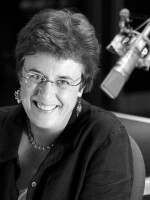LIANE HANSEN, host:
This is WEEKEND EDITION from NPR News. I'm Liane Hansen.
President Bush is wrapping up a visit to Beijing, where he held talks with Chinese President Hu Jintao. White House officials are reporting mixed results from the meetings. They said Mr. Bush made some headway convincing President Hu that he needs to control China's ballooning trade surplus with the United States and that he needs to crack down on the pirating of American products. But they said China has made little or no progress promoting human rights and expanding political and religious freedoms for its citizens. President Bush began his day in Beijing attending services at one of the five government-sanctioned Protestant churches in the city. He spoke to reporters outside.
President GEORGE W. BUSH: My hope is that the government of China will not fear Christians who gather to worship openly. A healthy society is a society that welcomes all faiths.
HANSEN: NPR White House correspondent David Greene has been traveling with the president, and he joins us from Beijing.
David, what point was the president trying to make by going to church in Beijing?
DAVID GREENE reporting:
The White House says the president wanted to come into the country and head right for a Protestant service to send a visual message to Chinese citizens that it's OK to want to worship freely. The president met with President Hu and says he spoke to the Chinese leader about granting more religious freedoms. He says he even told Hu that he should invite Catholic leaders to China to sit down with them. But the White House acknowledges it has been very slow going on these issues, that the clearest example when Mr. Bush met with President Hu in September in New York, US officials gave the Chinese counterpart the list of human rights cases they wanted the Chinese to address, and here Mr. Bush is in Beijing and had to deal with the fact that the Chinese government hasn't touched a single item on the list.
HANSEN: Diplomatically, David, this was always supposed to be the most delicate stop on the president's trip to Asia. How does the White House think the visit went?
GREENE: Well, the White House was playing up the tone of the meeting. Officials said Mr. Bush and President Hu are becoming more comfortable with each other each time they meet, but as for substance, they admitted there were just some accomplishments. The White House wants China to change the way it values its currency, for example, because US exporters are at such a disadvantage the way it is now. A senior administration official came in to talk to reporters--as long as we didn't use his name--said President Hu in New York in September said, quote, "a whole lot of nothing about currency," and the fact that he actually talked about it here in Beijing and said he's working to revalue the currency and is working to make trade more balanced with the US was alone a good sign.
The presidents came out to talk to reporters after they met, and it was interesting. President Bush really seemed down and it led to a lot of speculation that he had wanted more from the meetings. He brushed that aside later and joked with some reporters. He said, `Don't you know about jet lag?'
HANSEN: The president has had to talk a lot about Iraq during this trip, even among all of the issues that he's had to deal with. Did Iraq creep into the headlines today?
GREENE: It sure did, often because the president brings it up like he did today. And he actually mentioned Democratic Congressman John Murtha by the name for the first time. He's the Pennsylvania Democrat who caused the stir in Washington when he called for a withdrawal of troops. The president called him a fine man, but then he took a shot at him. He said elected leaders have a right to voice their dissent on Iraq, but that they have a responsibility to provide a credible alternative to his policy. So this debate is only intensifying.
HANSEN: NPR's David Greene in Beijing. David, thanks a lot.
GREENE: A pleasure. Transcript provided by NPR, Copyright NPR.



